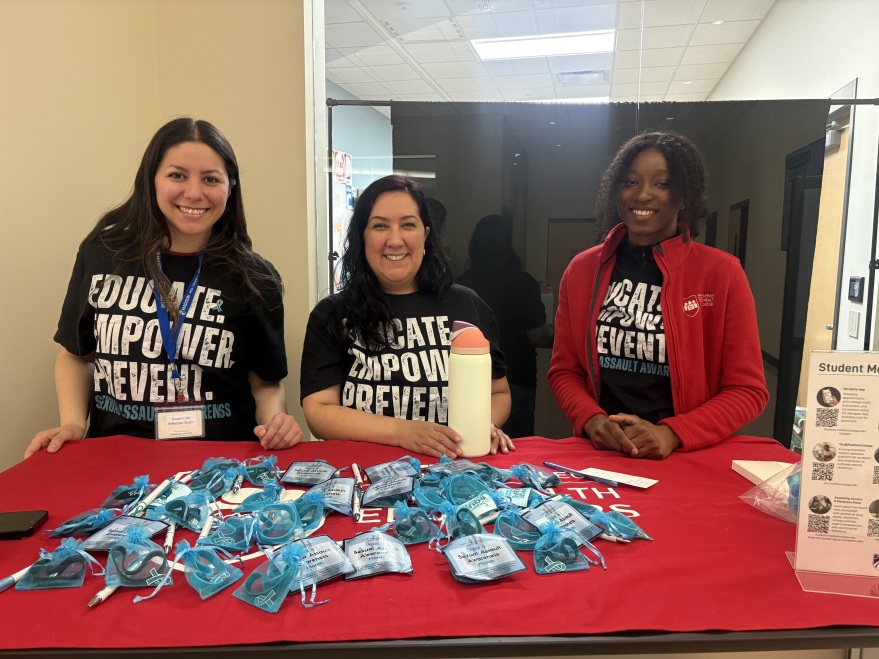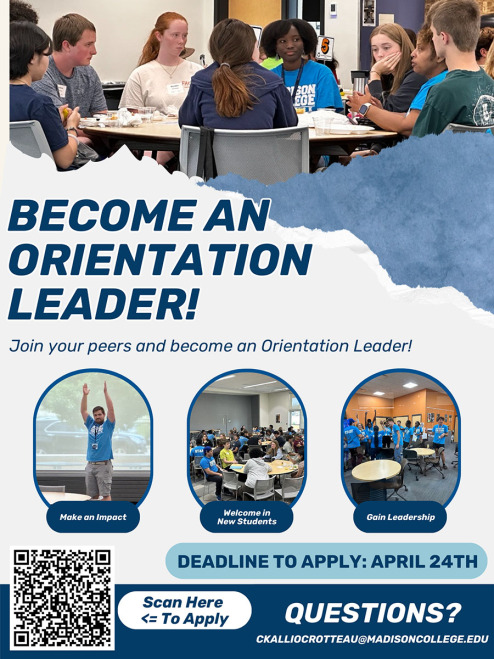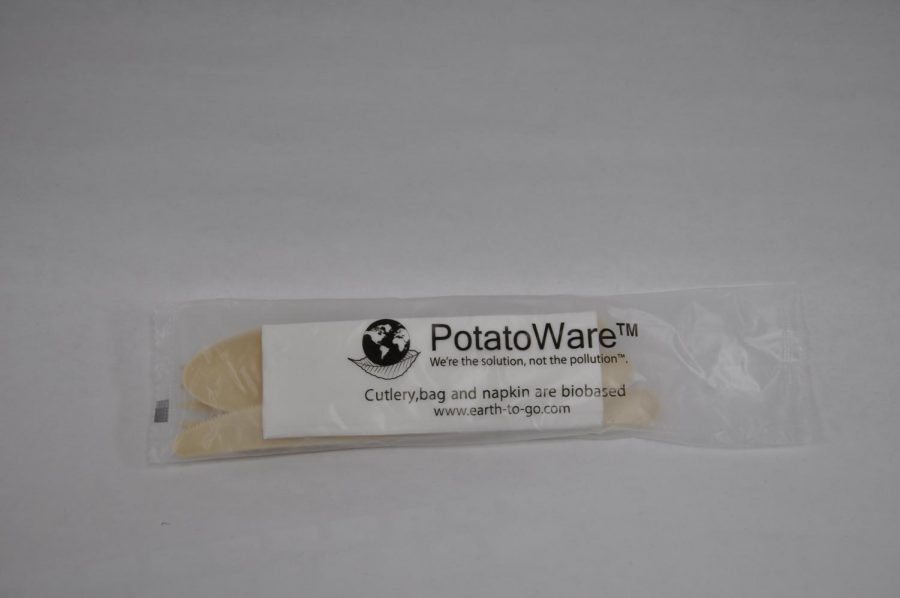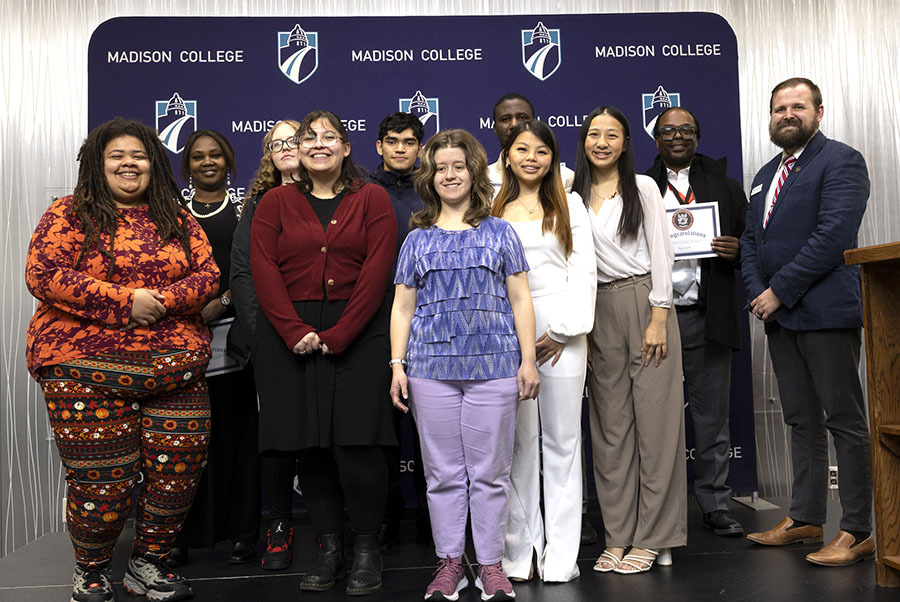Madison College Food Services Go Green
Moving towards a sustainable future
PotatoWare cutlery is one of many new options as Madison College Food Services moves toward more green packaging.
October 28, 2020
By taking the natural steps to move forward in a direction where a healthy sustainable future exists, Madison College’s Food Services have chosen to take the green route.
With help of Jason Walker, the Director of Food Services, David Dorst, the Head Chef, and Lisa Hunter, the Sous Chef at Madison College, the department has been in the process of fully incorporating safe packaging products on campus to limit the community’s carbon footprint on Earth.
“Ultimately, it is our goal to make sure we have Earth responsible products in the food service section,” said Hunter. “I think with the amount of to–go containers that the food industry is using now and the increased awareness for climate change […] these products are really going to take off.”
Tater Ware’s prewrapped cutlery and napkins are one of the several single-use food devices being used on campus that help with the sustainability effort. This product’s main ingredient is starch from potatoes and vegetables. Though not 100 percent biodegradable, its high levels of bio-based materials makes it easier for the substance to break down.
Placon is another resource that the college is taking advantage of to add to their green direction. This company is local and located in Fitchburg, WI. The products are not biodegradable and are plastic, but they come with a twist. The company cleans single use water bottles, shreds them up, melts them together, and then creates second–use plastic items. On campus, these plastics include the deli containers for the salad bar and the containers for snacks like cookie dough.
However, the problem with plastic is that not everyone recycles. Hunter explained an entirely plant–based product called Greenware, saying “It’s made of PLA (resin) derived entirely from plants not petroleum. So, its 100% compostable, but yet, it has the durability of plastic.” So even though some plastic may not be recycled properly, Greenware would be handled responsibly regardless because it’s completely biodegradable. Greenware items such as the parfait containers and grab-n-go cups can be found on campus.
However, there are some cons to these healthier products – the supply and the demand. With Earth friendly products becoming more popular, the order for them has increased, which heightens cost. Overall, paper and plastic are the cheapest and the most cost-effective solutions. They tend to “shave some money off” of the items available for students and staff on campus.
“Although we all want to contribute to this movement, we really have to work in a cost-effective manner so that it doesn’t reflect so steeply on our end consumer,” said Hunter. For those individuals who are just starting off building their career, it is important to the college to keep prices reasonable for its target market.
Due to COVID-19, the campus’s food services are running slower than usual. This has caused many plans within this department to go on standby and projects to stay at bay. However, Hunter assures the community that, “when the time comes and when it is safe to do so, we will be forging ahead.”
They are taking this time now to get rid of their past stocked items that are not sustainable, such as Styrofoam. Once those items are cleared, food services will be fully invested in purchasing safer goods for its community.
Even with the challenges the food services of Madison College are experiencing while trying to move forward, they don’t plan to give up anytime soon. They continue to have an eye on the future and on the earth that holds us all together.
“We are gonna move in any direction we can to make sure that we’re meeting our sustainability goal,” said Hunter.
































